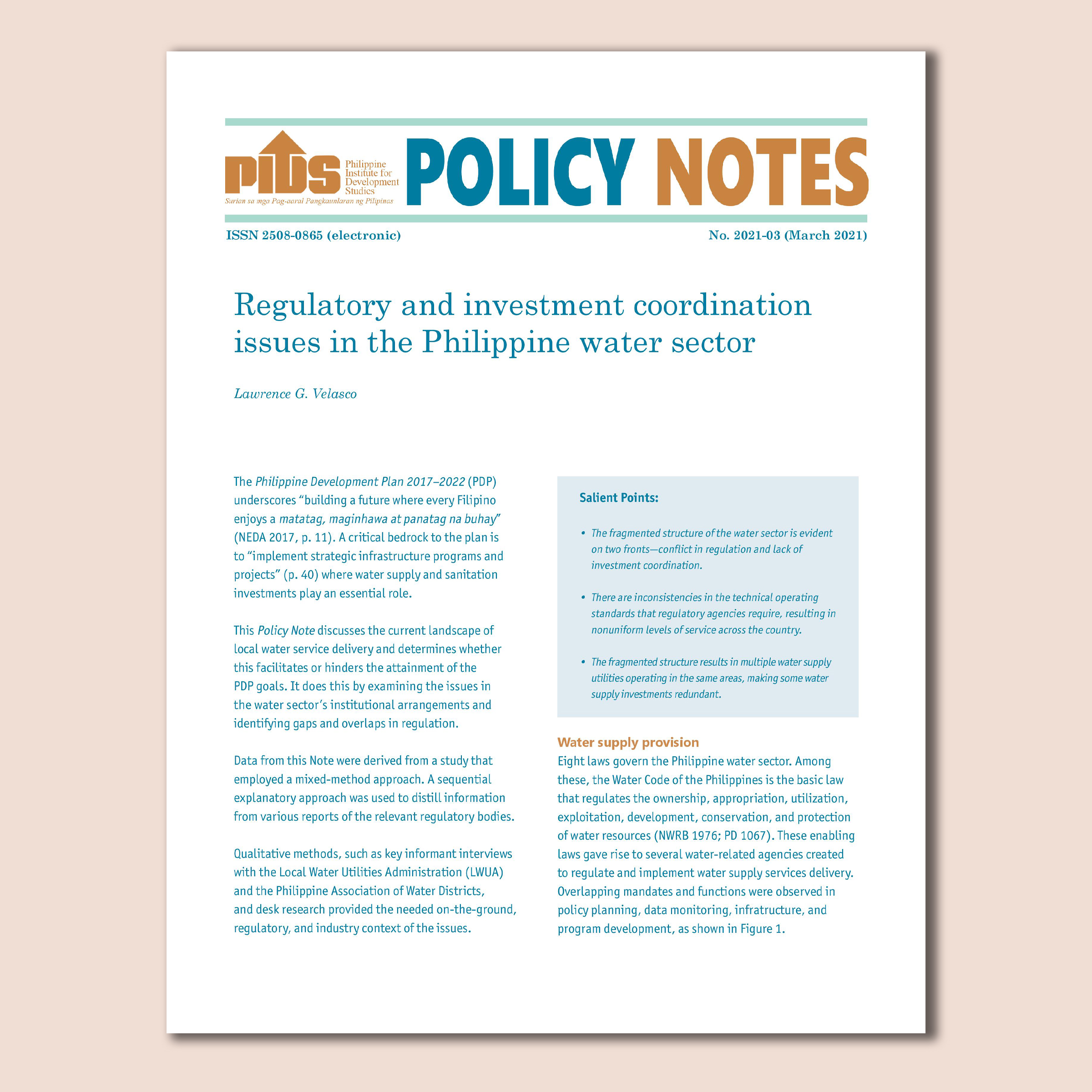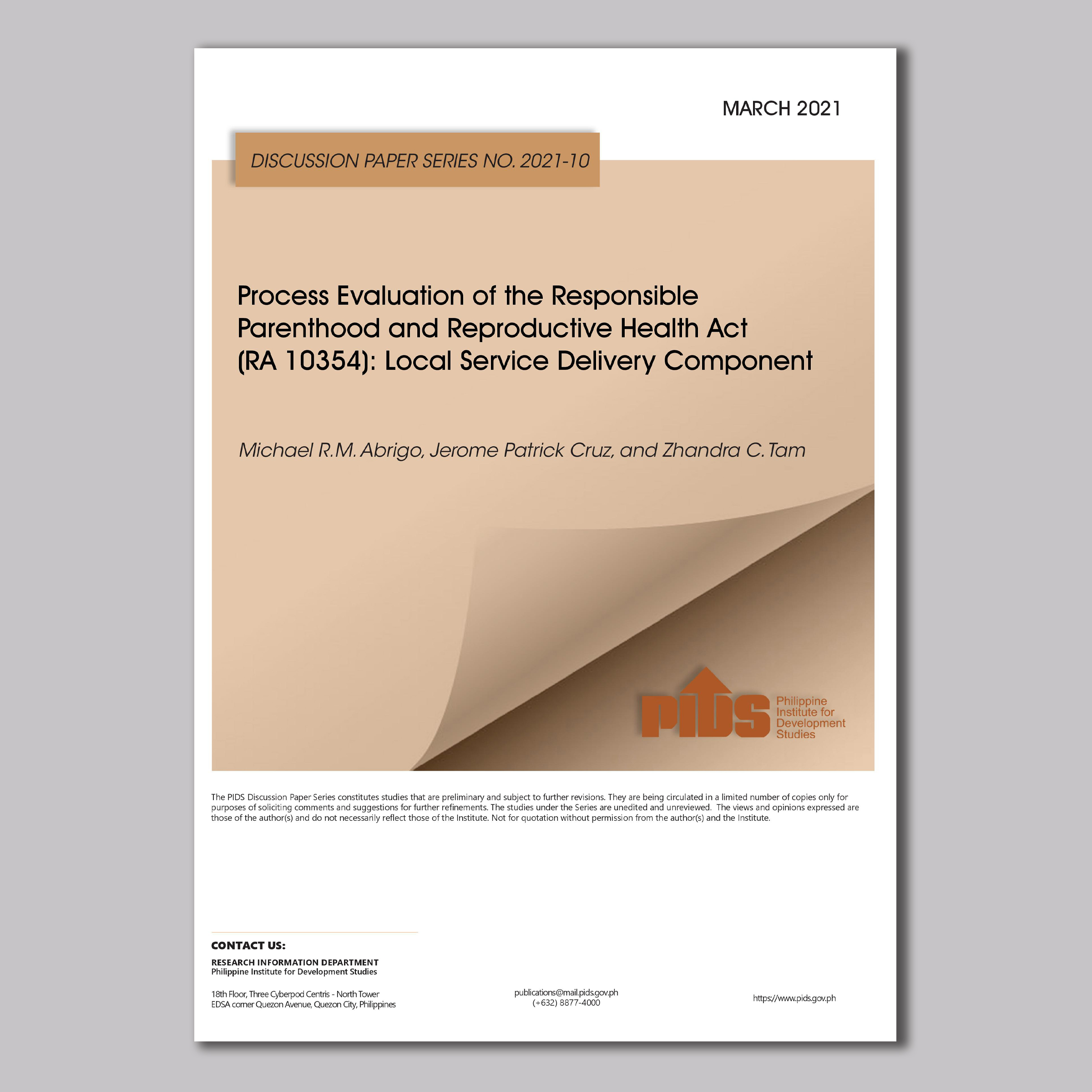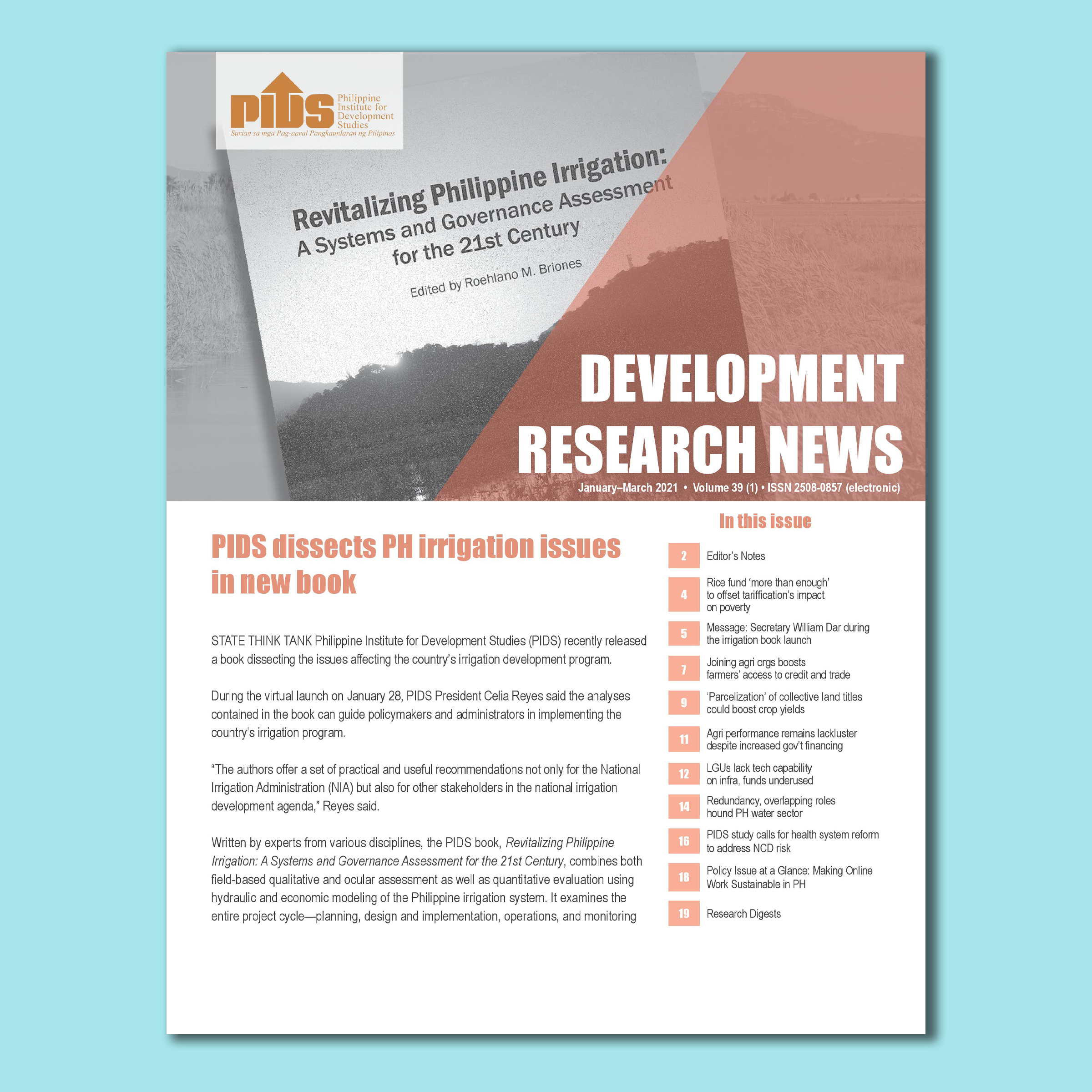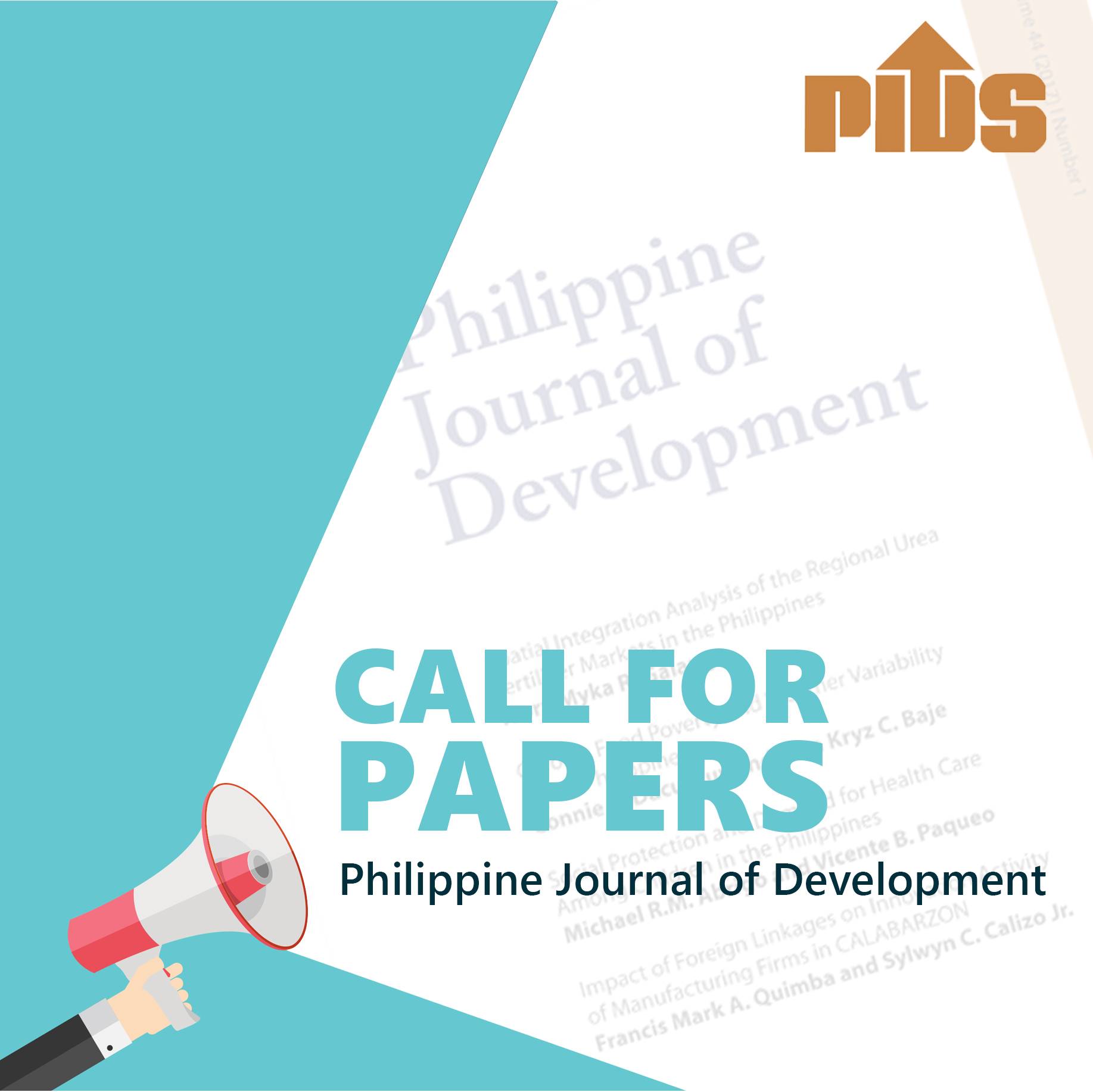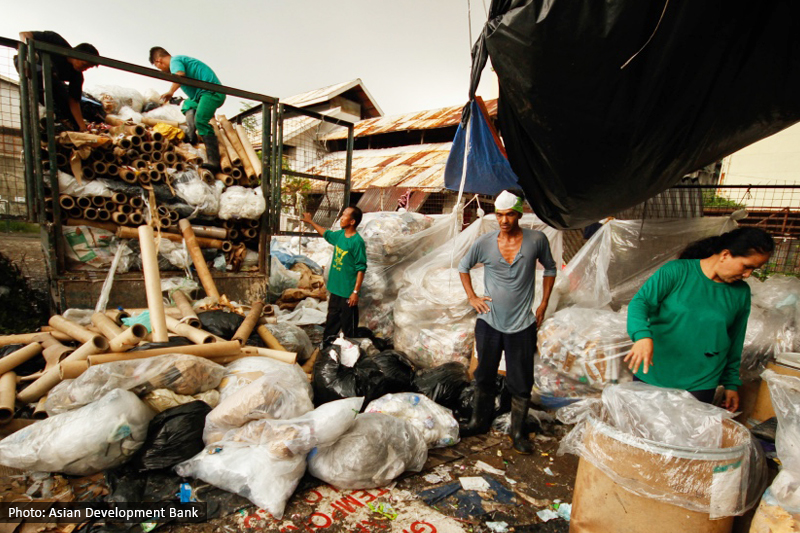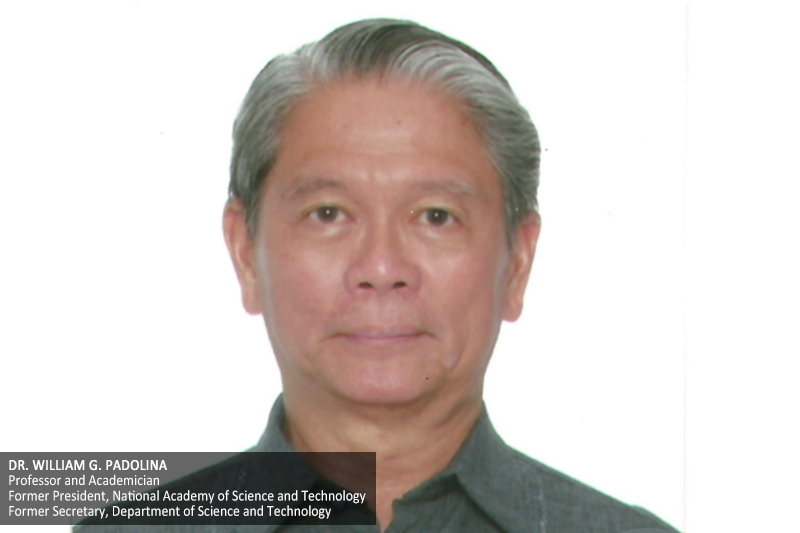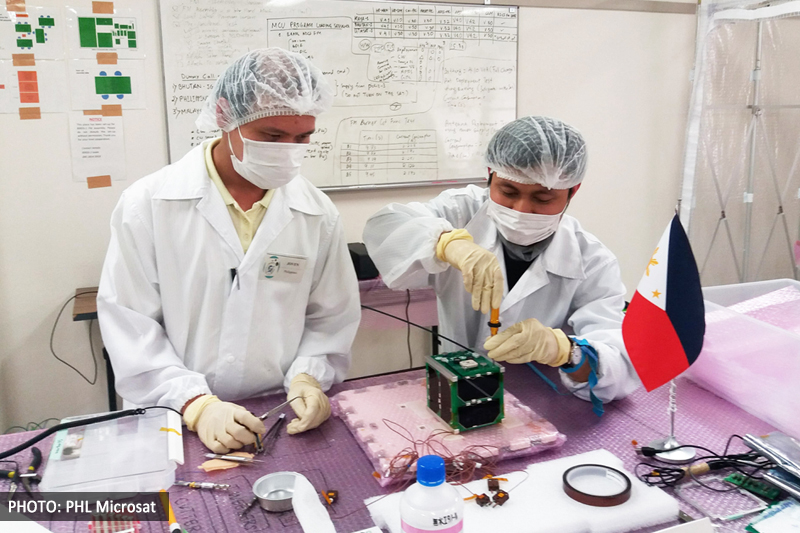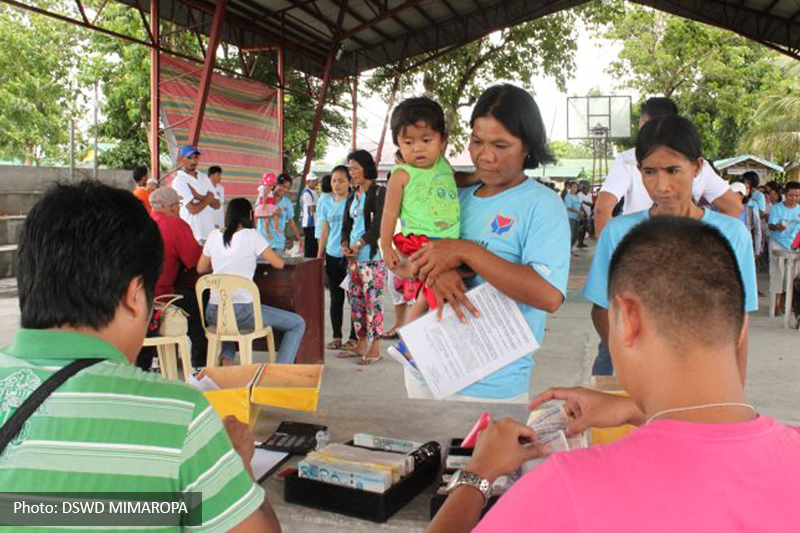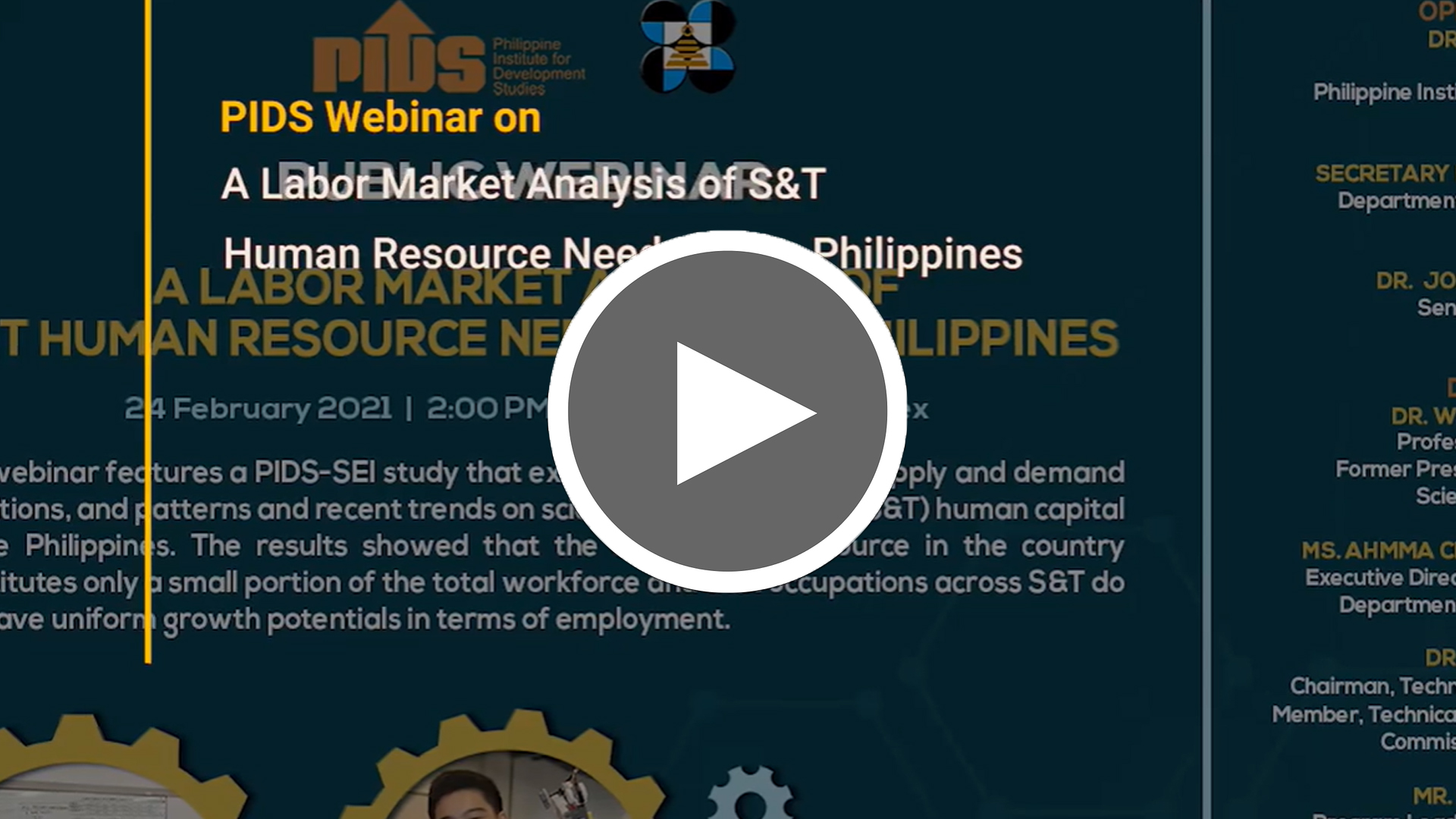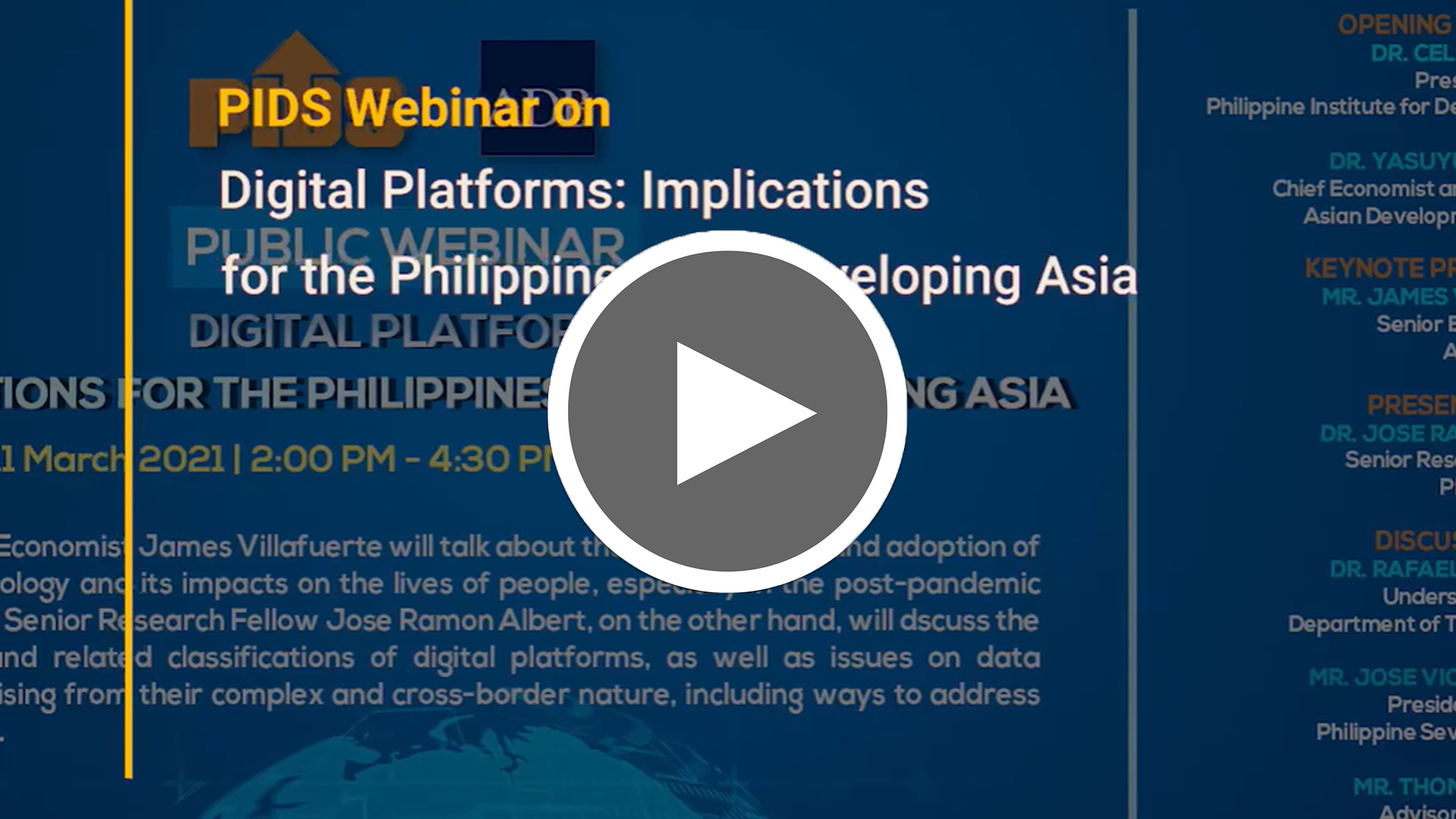Having trouble reading this email? View it in your browser. |
||||
 |
||||
|
||||
POLICY NOTES
Water supply and sanitation is an important component of the country's strategic infrastructure program under the Philippine Development Plan (PDP) 2017-2022. To determine whether the water sector contributes or hinders the PDP's attainment, this Policy Note examined the issues in the water sector's institutional arrangements and identified gaps and overlaps in regulation. It found that the water sector's fragmented structure resulted in regulatory conflicts and lack of investment coordination. Inconsistencies in the technical operating standards of various regulatory agencies, which gave rise to nonuniform levels of service across the country, were also uncovered. The study recommended that conflicting and overlapping regulatory mandates be clarified and technical regulation and operating standards be aligned. Lastly, it called for the creation of a central coordinating body to keep track of investments and funding needs of water supply entities nationwide. Click here to download the policy note.
PN 2021-04: The National Government's Role in Local Water Supply Delivery in the Philippines Improving water supply and sanitation is essential to achieve the Sustainable Development Goal of ensuring availability and sustainable management of water and sanitation by 2030. This Policy Note looks into the national government's role in local water supply provision. It found that fund utilization is higher for national government initiatives than the mandated local development fund (LDF), which is the source of local government units' (LGUs) infrastructure spending. This could create a problem in the future, especially with the implementation of the Mandanas ruling in 2022, which could drastically lower the national government's budget for infrastructure support programs. Thus, this study recommends that LGUs must be capacitated in investment planning, identifying bottlenecks, and finding solutions for the delayed utilization of their LDF. Meanwhile, if the national government decides to continue these water infrastructure projects, the study suggests these must be strategically targeted given the weak evidence that past programs were associated with regional poverty incidence and access to water supply. Click here to download the policy note.
DISCUSSION PAPER SERIES
This report presents the results of a process evaluation on the delivery of mandated services in communities by local government units (LGUs) under the Responsible Parenthood and Reproductive Health (RPRH) Law. The study, which involved an extensive desk review, focus group discussions/key informant interviews, and an online survey of LGUs, is part of a larger set of evaluations that aim to document and assess the implementation of the RPRH Law, including its governance and organizational design, financing, logistic and supply chain management, and education and communication activities. While reproductive health services are generally provided by local governments, this study documents significant disparities in various aspects of local service delivery, which may be linked to differences in the available resources available to and provided by local governments, such as in fiscal resources, local information systems, human resources, infrastructure and supply, and governance. Some documentation of RPRH services, whose provision was discontinued amidst the COVID-19 pandemic in 2020, is also furnished. The report’s recommendations to improve the delivery of RPRH services span measures to build support systems for RPRH, improving service delivery, and monitoring progress at the local government level. Click here to download the discussion paper.
DP 2021-11: Decent Work in Crowdwork: Gendered Takeaways from an Online Survey in the Philippines Platform work has the potential to help women reconcile the age-old conflict between unpaid work and market work. However, there is a degree of precariousness in platform work, one that is reminiscent of informal work. Concerns on whether platforms are new vehicles of delivering old inequalities are legitimate. This paper analyzes the issues in this emerging type of work to prevent the widening and deepening of existing inequalities, to ensure decent work in platform work, and to ensure that the work is inclusive and sustainable. It looks at the experience of Filipinos in crowdwork, a platform work that poses challenges in the enforcement of national labor laws as transactions are typically cross borders. The study finds, among others, that: (1) women are more likely to participate in platform work due to considerations of income, housework, and care economy; (2) platform work is done alongside nonplatform work; (3) past experience on the platform is an important factor in the workers' current platform involvement; (4) the time spent on platform work peaks at minimal care work; (5) there is no gendered difference in the compensation per hour once personal and platform attributes are controlled for; and (6) the compensation per hour received by the respondents is at par with the rate of platforms known for outsourcing routine tasks (microtasks). The study also provides key takeaways to initiate conversations on national programs and initiatives that ensure sustainable and decent work on platforms. Click here to download the discussion paper.
DP 2021-12: Process Evaluation of Selected Programs of the Department of Health (DOH): RPRH Education and Communication At the core of the mandate of the Responsible Parenthood and Reproductive Health (RPRH) Act is the delivery of responsible parenthood and reproductive health services and information. Among the key provisions of the law are financing, governance, and public awareness and education. This paper discusses the extent of implementation of the RPRH education and communication, specifically on the output-level performance of the key implementing agencies and personnel, and the enabling factors and barriers that affect their implementation of the program. Results of the review of relevant documents, interviews, and focus group discussions show that the key agencies in the implementation of the RPRH education and communication manifest compliance with some of the provisions of the RPRH Law's implementing rules and regulations. Click here to download the discussion paper.
DP 2021-13: Filipinos' Access and Exposure to ICT: A General Overview based on the National ICT Household Survey Information and communications technology (ICT) has been considered a basic necessity in the digital world. It is noted that it permeates all aspects of life as it provides better and quicker ways for people to learn, interact, and gain access to information. In the Philippines, the 2019 National ICT Household Survey marked the first effort by the government to map the general ICT landscape in the country which examined, among others, the use of cellular phones and computers and the extent of internet usage and online financial transactions. This survey was administered to a nationally representative sample of households and individuals in the country. This paper provides a general overview of ICT use based solely on this survey. The findings show that there is differentiated access to ICT across subnational regions. There also remains a nonnegligible proportion of individuals who do not have access to ICT partly due to lack of infrastructure. There is also much to improve in terms of using ICT for economic purposes, such as acquiring skills, doing online financial transactions, and conducting business. Click here to download the discussion paper.
DP 2021-14: Profile of Training and Skilling Programs in the Philippines This study is undertaken as part of the Youthworks PH initiative by the Philippine Business for Education. It aims to address five research questions: (a) What are the existing training programs for the priority sectors of YouthWorks PH (construction, manufacturing, and tourism)? (b) How responsive are the current training programs to the needs of industries? (c) Is there industry demand for new National Certificates in specific sectors and for what level and occupation? (d) How did the Covid-19 pandemic change the landscape of training programs in the country? (e) What are the emerging industry sectors brought about by the Covid-19 pandemic? Secondary data and interviews with relevant stakeholders, particularly with training providers in YouthWorks PH priority sectors, were used in this study. TVET providers are overwhelmingly private, but public providers account for a larger share of graduates. Most TVET graduates are products of either community-based or institution-based TVET programs. TVET programs and graduates are concentrated in a few occupational sectors, the dominant sector being Tourism (Hotel and Restaurant). Likewise, demand for assessment leading to a National Certificate is concentrated in relatively few qualifications. The government offers several scholarships promoting TVET access. The issues on the responsiveness of current programs, according to the respondents, revolves around: (a) the lack of demand, particularly for construction; (b) weaknesses in the design of financing programs; (c) perception about the quality of training schools, trainers and assessors; and (d) training content. Industry respondents noted demand for skills standardization in prefabricated construction, supervisory-level construction jobs, and nursing assistance. Restrictions due to Covid-19 resulted in the suspension or scaling down of training programs. Some providers have provided online modules, but lack of access to appropriate digital devices or the internet hinders remote learning. Covid-19 has caused the emergence of online food selling and made digital skills valuable. The study recommends pursuing an information campaign to promote construction jobs; reviewing and rationalizing TVET financing programs; reviewing the TVET content; tapping industry practitioners as trainers and assessors; investing in flexible learning modalities; and promoting regular dialogue between the government, employers, and TVET providers. Click here to download the discussion paper.
DEVELOPMENT RESEARCH NEWS
The COVID-19 crisis has highlighted the urgent need for a stronger agricultural sector. Thus, this first issue of the Development Research News (DRN) for 2021 focuses on some key challenges affecting agriculture and related sectors. The banner story features the Institute's book on irrigation, a compilation of studies that analyze the state of the country's national and communal irrigation systems and the various irrigation program aspects, including water resource governance, benefits and costs, and policy reforms. The other articles tackle the Rice Competitiveness Enhancement Fund, the value of farmer organizations in improving small farmers' access to credit and markets, and the importance of tenure security and transferability of rights. This issue also includes articles discussing the local government units' underutilization of their local development fund, the governance issues hounding water service provision at the local level, and the growing incidence of noncommunicable diseases in the country. Click here to download the newsletter. |
March 11, 2021, 2:00PM-4:30PM April 8, 2021, 2:00PM-4:30PM April 15, 2021, 2:00PM-4:30PM April 22, 2021, 2:00PM-4:30PM April 29, 2021, 2:00PM-4:30PM
|
|||
The COVID-19 pandemic has accelerated the shift to digital economy and the Philippines should take advantage of it. Abell, a discussant in the webinar, said the world might see an economic boom that will fuel digital economy as countries transition to the so-called ‘new normal’ once “the pandemic starts to recede.” READ MORE
Accelerating the digital transformation could lead to substantial growth in global output, employment, and trade. Sawada, citing ADB’s 2021 Asian Economic Integration Report, noted that “if digital sectors expand by 20 percent from the year 2020, global output will rise by USD 4.3 trillion annually and Asia’s output will increase to USD 1.7 trillion annually for the next five years.” READ MORE
The COVID-19 pandemic has fast-tracked the digitalization journey of the country. Aldaba said the increasing use of technology in work, business, and other aspects of daily life has shaped new digital habits among Filipino consumers. READ MORE
The country is still grappling with solid waste management issues despite the implementation of the Ecological Solid Waste Management Act of 2000 or Republic Act 9003 for almost two decades now. PIDS Senior Research Fellow Sonny Domingo and PIDS Research Analyst II Arvie Joy Manejar, authors of the study, said that if RA 9003 has been properly implemented, it would have “conveniently and strategically allowed the imposition of systematic and structured remedies” that would have addressed the country’s problem on solid waste management. READ MORE
The education sector needs to focus on basic science and mathematics, teacher education, and graduate education to improve the quality and supply of science and technology (S&T) graduates in the Philippines. Padolina said that basic sciences, including biology, chemistry, physics, earth sciences, social sciences, as well as mathematics, need to be strengthened as these are the source of “new ideas”. READ MORE
A holistic approach to support the country’s current and future science and technology (S&T) workers should be a joint undertaking among various sectors.
A study of state think tank Philippine Institute for Development Studies (PIDS) recommends the automatic adjustment of cash assistance for Pantawid Pamilyang Pilipino Program (4Ps) beneficiaries. |
||||
FACT FRIDAY
INFOBITS
Watch these videos and get a glimpse of the highlights of our webinars on "A Labor Market Analysis of S&T Human Resource Needs in the Philippines" held on February 24 and "Digital Platforms: Implications for the Philippines and Developing Asia" held on March 11.
|
||||
Need help? Have feedback? Feel free to contact us. |
||||
